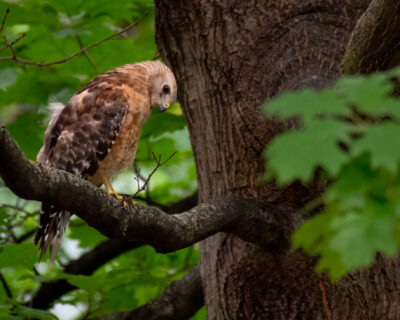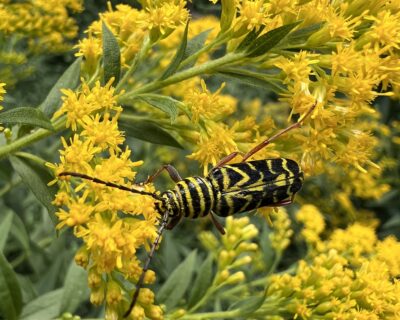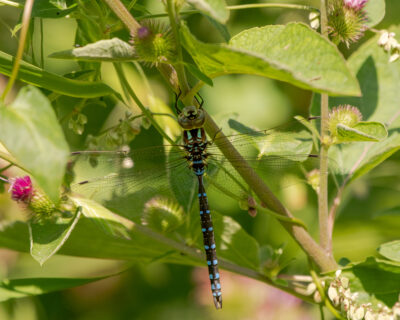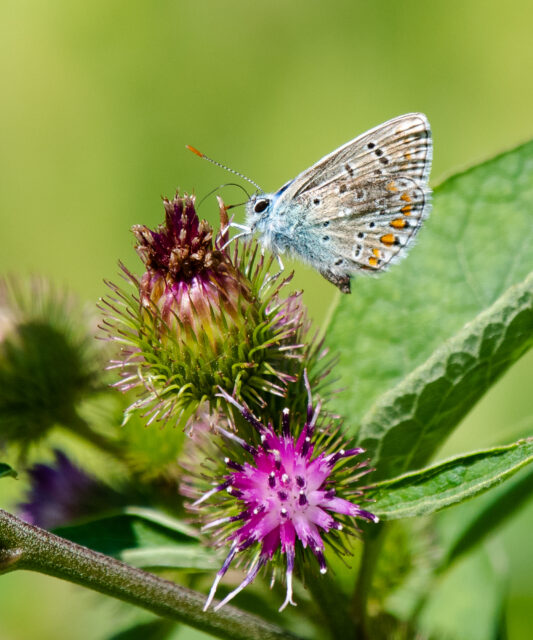Closing in on 1,000 species observed on campus!
Three hundred and two days into the Dawson community’s 1,000 Species in 1,000 Days campaign, the number of species identified is now at 749!
These species were identified on Dawson’s city-block downtown Montreal campus and catalogued in the iNaturalist community named Dawson College- Campus Biodiversity Network.
Even over the quieter summer period, 32 new observers joined the community and 185 species were added to the count. Noteworthy observations this summer included a Red-Shouldered Hawk, a Mosaic Darner Dragonfly, a type of long horned beetle called a Locust Borer and a European Common Blue (butterfly).
Quite a few people in the Dawson community had a chance to observe the hawk, which was also seen in action hunting a squirrel. The dragonfly was one of the species attracted by the Dawson Wetlands built in 2022 near the first parking lot.
Project lead Brian Mader, faculty member (Biology), has a passion for entomology and has looked for the Locust Borer in many environments but has only ever seen it on campus at Dawson. “It mimics a wasp for protection,” he said of its appearance.
The more people observing wildlife and Nature on campus the better. Everyone is welcome to join and anything recorded in iNaturalist on campus is automatically added to the count.
Brian believes that as the community closes in on the 1,000 species goal, it will become more challenging to add to the count.
Photo credits: Doug Smyth (Faculty, Phys. Ed.) and Brian Mader (Faculty, Biology)



For more info and how to join, see the launch story: https://www.dawsoncollege.qc.ca/news/dawson-community-mobilizing-to-identify-1000-species-in-1000-days/
If you need help getting started or would like to get your class involved: reach out to Brian Mader (bmader@dawsoncollege.qc.ca), and inquire about borrowing the mobile biodiversity toolkit with field guides, binoculars, iPads with microscopes, insect nets, and much more!
Watch CTV Montreal’s Earth Week 2023 report on the project: CTV feature



